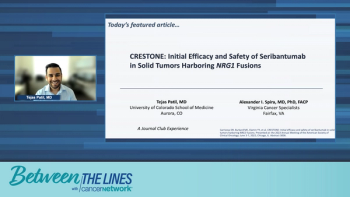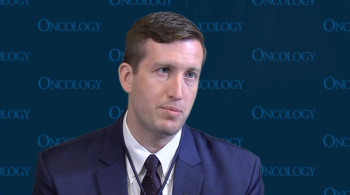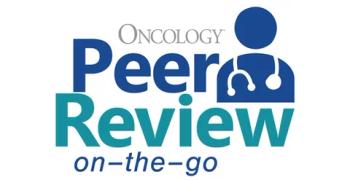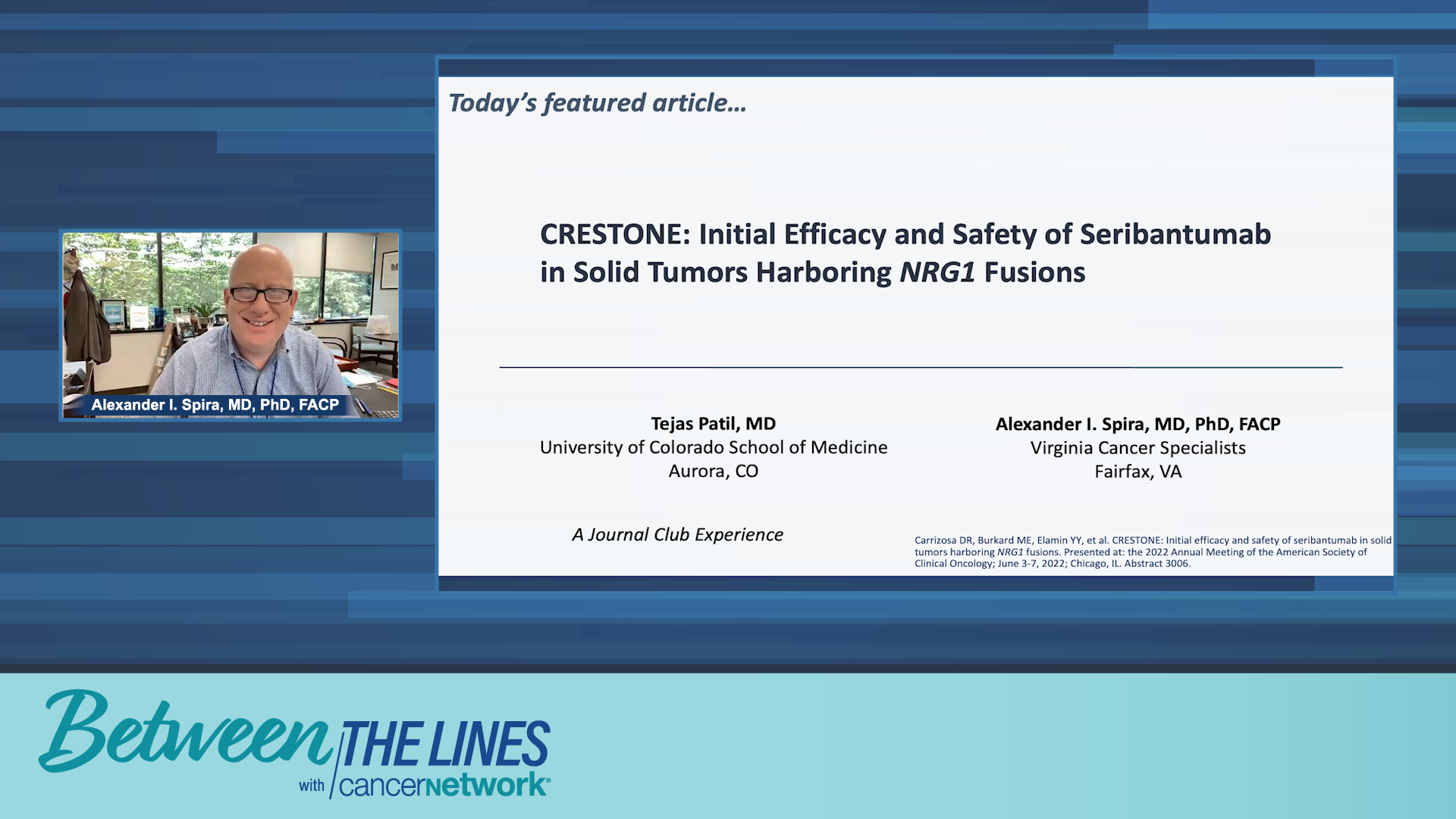
Oncology
Latest News
Latest Videos

CME Content
More News

Patients with ALK-positive inflammatory myofibroblastic tumors can now receive treatment with crizotinib following the agent’s approval by the FDA.

Shared insight on key efficacy data from the CRESTONE clinical trial of seribantumab therapy in solid tumors with NRG1 fusions.

Expert perspectives on the trial design of and safety data from CRESTONE, which analyzed seribantumab therapy in solid tumors with NRG1 fusions.

Treatment strategies might be better tailored through the use of next-generation sequencing to detect NRG1 fusions.

Patients with TRK fusion–positive disease experienced promising survival outcomes following treatment with larotrectinib vs standard of care.

Shubham Pant, MD, spoke to the potential of ELI-002 2P as a treatment for minimal residual disease positivity in patients with KRAS-mutant solid tumors.

Benjamin Cooper, MD, discussed potential future studies exploring TAK-676 plus pembrolizumab after radiation for those with solid tumors.

Patients with RET fusion–positive solid tumors continued to experience benefit from treatment with selpercatinib, according to extended follow-up from the phase 1/2 LIBRETTO-001 basket study.

Key leaders in the oncology space discuss unique cancer risk factors, barriers to care, and ways in which institutions and organizations are creating more welcoming environments for individuals within the LGBTQ+ community.

Suneel D. Kamath, MD, spoke with CancerNetwork® about the latest research from the journal ONCOLOGY® on how financial conflicts of interest correlate with success of early-career academic oncologist.

Benjamin Cooper, MD, discussed an ongoing trial examining TAK-676 in combination with pembrolizumab after radiation therapy for patients with non–small cell lung cancer, head and neck cancer, and triple-negative breast cancer.

Patients with metastatic cancer had improved health-related quality of life, physical function, and symptom control at 3 months when a weekly electronic patient reported outcomes survey was used.

Dabrafenib plus trametinib may now be used to treat patients with BRAF V600E–positive solid tumors who have no suitable alternative treatment options following its approval by the FDA.

Nora Janjan, MD, MPSA, MBA, spoke with CancerNetwork® about the latest perspective from the journal ONCOLOGY® on how roles and responsibilities of academic clinicians in reporting of conflicts of interest influence oncology research.

Shubham Pant, MD, highlights the importance of tailoring treatment in patients with pancreatic cancer by exploring biomarkers.

Results from the phase 2 CRESTONE trial showed positive overall response rates in patients with solid tumors harboring NRG1 fusions treated with seribantumab monotherapy.

FoundationOne CDx has been approved by the FDA as a companion diagnostic for entrecitinib for the treatment of ROS1 fusion–positive non–small cell cancer or NTRK fusion–positive solid cancers.

Results from a cohort of the TAPUR study showed that the combination of cobimetinib plus vemurafenib demonstrated antitumor activity among patients with BRAF mutations who are not otherwise eligible for treatment with other FDA-approved therapies.

Benefits of larotrectinib in patients with tumors harboring NTRK fusions have been established, with new data showing health-related quality of life benefits with its use.

Patients with TRK fusion–positive central nervous system tumors were observed to have increased efficacy and safety when treated with larotrectinib at long-term follow-up.

Without regard for tumor histology, NRG1-positive cancers treated with zenocutuzumab experienced promising efficacy and acceptable safety.

Across 3 clinical trials, investigators continued to observe durable responses with larotrectinib, which showed the importance of NTRK gene fusion testing in patients with various cancer types.

A biologics license application for pegfilgrastim-pbbk was accepted by the FDA for use in patients experiencing neutropenia while receiving chemotherapy.

Findings from the phase 3 DeFi study indicated that treatment with nirogacestat met the trial’s end points in patients with progressing desmoid tumors.

Patients who are black had a longer overall survival after investment was made for public welfare programs concerning those with cancer.















































